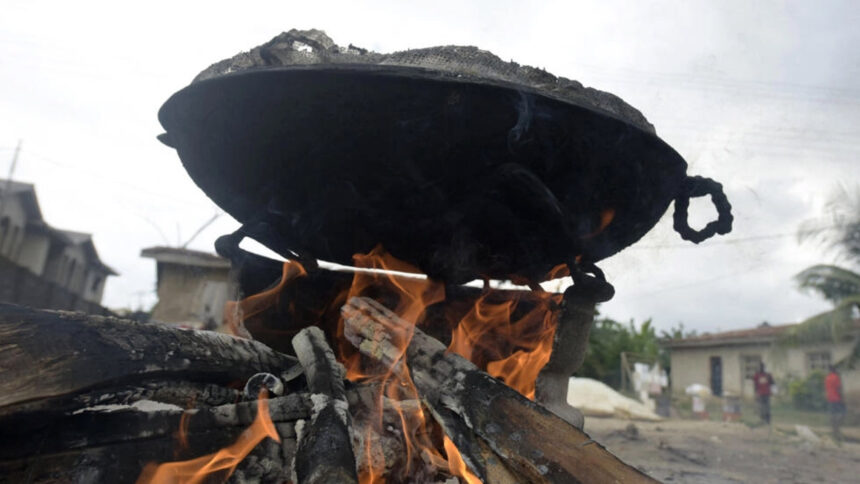An estimated 2.3 billion people worldwide still rely on burning wood, charcoal, dried dung, or other waste materials for cooking, with Africa bearing the brunt of this practice. These traditional cooking fuels contribute to 3.7 million deaths annually, with women and children disproportionately affected.
To address this harmful cooking method and promote clean cooking solutions, the International Energy Agency is hosting a summit in Paris on Tuesday, May 14, with representatives from 50 countries expected to attend.
The aroma of spices and caramelized onions wafts from a pot connected directly to electricity. “I’m making fried rice,” explains Elizabeth Chibuka as she prepares a Ugandan recipe. “I sautéed onions with turmeric and coriander. I use a high-pressure cooker, which cooks food faster. The idea is to consume less energy and therefore cost less for those preparing meals.”
While innovative models like solar cookers, green hydrogen, or bioethanol-powered stoves abound, scaling up adoption remains challenging due to infrastructure limitations, such as the need for electricity for electric cookers, or the absence of certain supply chains, as with Aart de Heer’s eco-friendly pellet stove. “If we could successfully compete with charcoal, then we would have an impact because our stove is not polluting,” asserts the company. “It operates with pellets that we seek to produce from biomass waste locally: wood shavings, sugarcane residues, coffee or rice husks… There are plenty of unused biomass possibilities that could be transformed into fuel.”
Healthier Cooking Methods
According to the International Energy Agency, there is a $4 billion annual shortfall to develop these supply chains and markets in Africa by 2030. One of the key objectives of this summit, convened by the African Development Bank, the International Energy Agency, and the Tanzanian and Norwegian leaders, will be to mobilize funds and launch projects to develop healthy and non-polluting cooking methods.
Moreover, as Daniel Wetzel, an analyst at the International Energy Agency, explains, cooking with charcoal or wood has serious implications for health and the environment. “Nearly one-third of the world’s population still relies on rudimentary cooking methods.
This is particularly the case in sub-Saharan Africa, where four out of five households still use these traditional cooking methods, which heavily impact human health. Smoke inhalation would be the second leading cause of death for women and children in Africa today if counted separately from other death vectors,” the expert argues.
Premature Deaths Reduction
According to Wetzel, providing access to clean cooking methods for the majority would reduce premature deaths by about 2.5 million, in addition to undermining one of the main drivers of deforestation in Africa. “This would save nearly two-thirds of the time spent gathering firewood, which would have enormous repercussions on time spent in school or engaging in other economic activities, farming, spending more time with family and community. Lastly, it affects greenhouse gas emissions,” he adds. Transitioning to clean cooking methods would, in total, avoid 1.5 billion tons of CO2 in Africa by 2030, equivalent to emissions from aviation or maritime transport worldwide.







